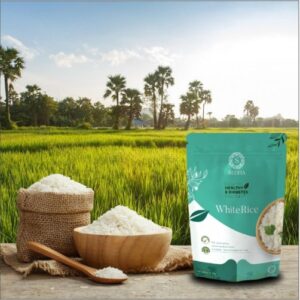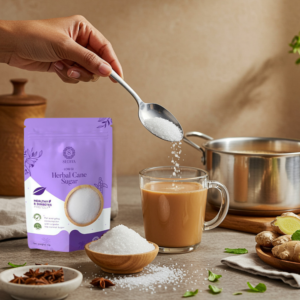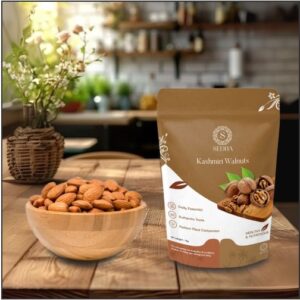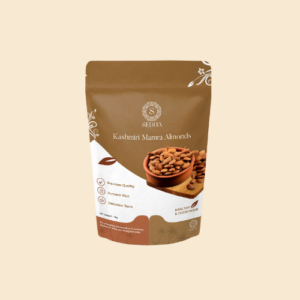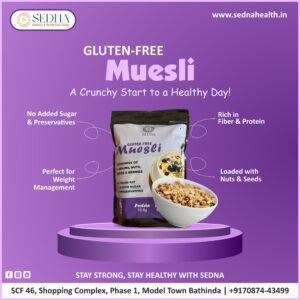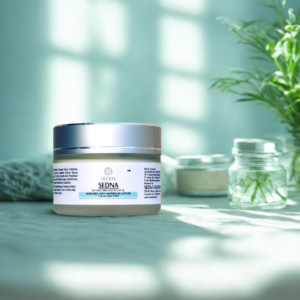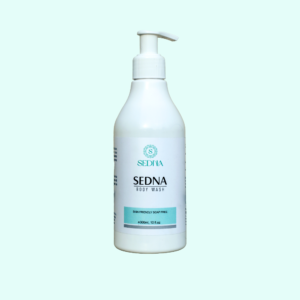PCOD Diet Plans
Manage PCOD Naturally with Nutrition
Polycystic Ovarian Disease (PCOD) is a condition where the ovaries release many immature or partially mature eggs, which eventually turn into cysts. PCOD treatment and diet focus on minimizing the severity of symptoms.
Common Symptoms of PCOD:
PCOS looks different for every woman, but the most common symptoms include:
- Irregular or absent menstrual periods
- Painful menstrual cycles
- Excess facial hair and acne breakouts
- Weight gain, especially around the belly
- Difficulty in conceiving
- Areas of dense, darker, velvety skin
- Increased risk of Type 2 diabetes, obesity, sleep apnea, heart disease, and other complications
What Causes PCOD?
The ovaries normally produce female sex hormones and a small amount of male sex hormones (androgens), which help in egg development. PCOD disrupts this balance, leading to an overproduction of androgens, which causes acne, excess hair growth, and missed ovulation.
How Does Diet Affect PCOD?
Many women with PCOD have higher insulin levels than normal, leading to insulin resistance. This results in increased androgens, making it difficult to lose weight. A proper diet can help balance hormones and insulin levels naturally.
Best Diets for PCOD Management
Problem: Many women with PCOD struggle with insulin resistance, leading to unstable blood sugar levels, hormonal imbalance, and weight gain
Solution: A low GI diet that includes whole grains, legumes, nuts, seeds, fruits, and non-starchy vegetables helps regulate blood sugar, reduce insulin resistance, and support overall metabolic health.
PCOS-Friendly Products:
Supports blood sugar balance
A healthier rice alternative
A natural, unprocessed sweetener
Problem: Inflammation is a common issue in PCOD, contributing to symptoms like insulin resistance and hormonal imbalance.
Solution: Consuming anti-inflammatory foods such as berries, fatty fish, leafy greens, and olive oil helps reduce inflammation-related symptoms and improve overall health.
Recommended Products:
Supports heart & brain health
Reduces inflammation & supports hormonal balance
Nutrient-dense & antioxidant-rich
3. DASH Diet (Dietary Approaches to Stop Hypertension):
Problem: High blood pressure and heart disease risks are elevated in PCOD patients.
Solution: This diet includes lean proteins, healthy fats, whole grains, and low-fat dairy to promote heart health and balanced metabolism.
Recommended Products
Aids digestion & stabilizes blood sugar
Provides essential vitamins & minerals
Foods to Avoid for PCOD
Problem: These foods contribute to insulin resistance, weight gain, and hormone imbalances.
Solution: Avoid processed and sugary foods to maintain stable blood sugar levels and overall health.
Refined Carbohydrates: Cakes, pastries, white bread
Fried & Fast Foods: Pizza, burgers, processed meats
Sugary Beverages: Sodas, energy drinks
Red Meat & Processed Meats: Ham, sausages, hot dogs
Lifestyle Changes for PCOD Management
Problem: Lack of physical activity and poor lifestyle choices worsen PCOD symptoms.
Solution: A combination of diet and lifestyle changes can improve PCOD symptoms effectively.
When to Seek Medical Help?
Problem: Persistent or worsening symptoms can indicate underlying health concerns.
Solution: Consult a doctor if you experience these symptoms:
Persistent acne and excessive hair growth
Unexplained weight gain
Severe menstrual irregularities
Difficulty in conceiving


